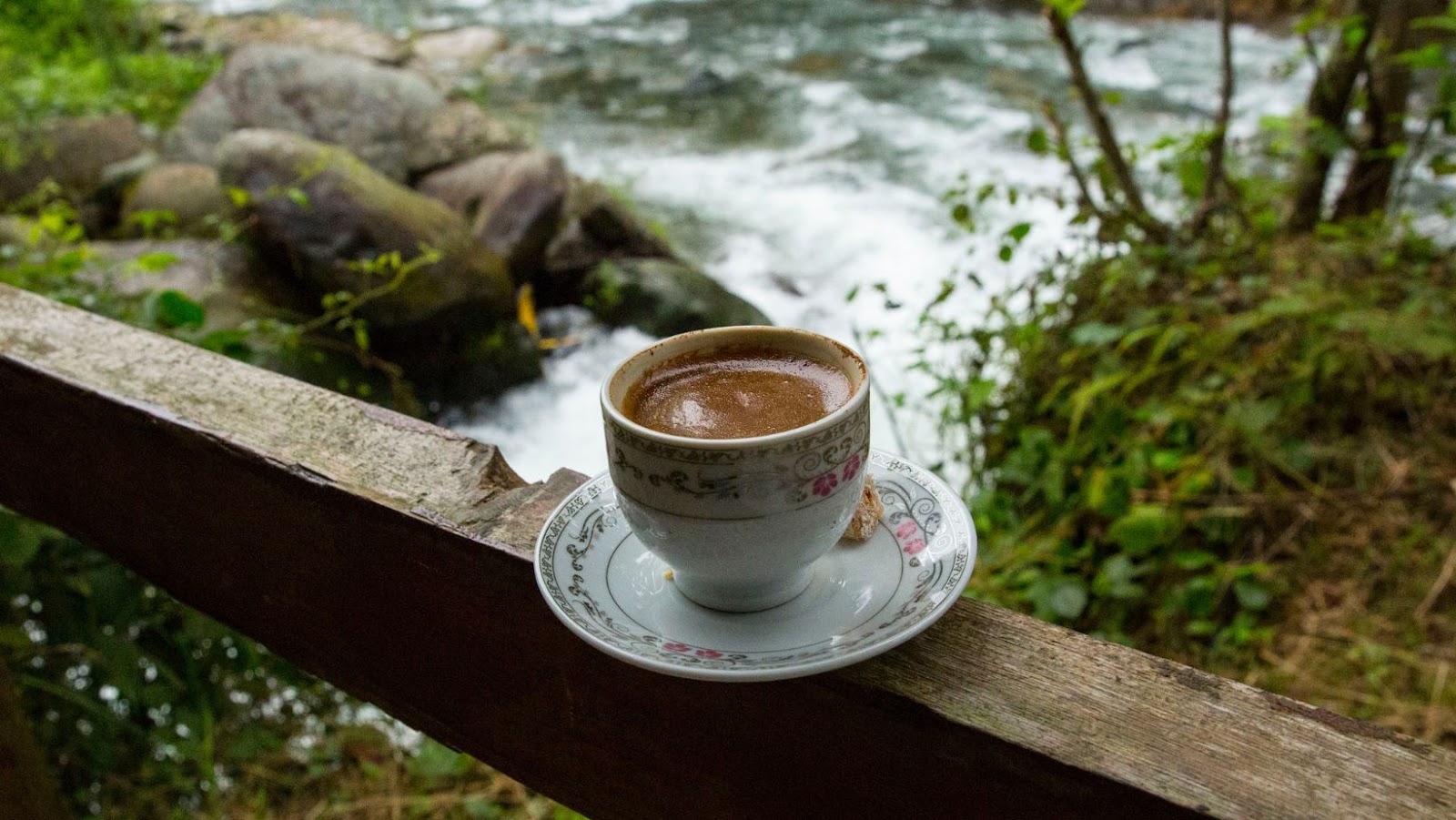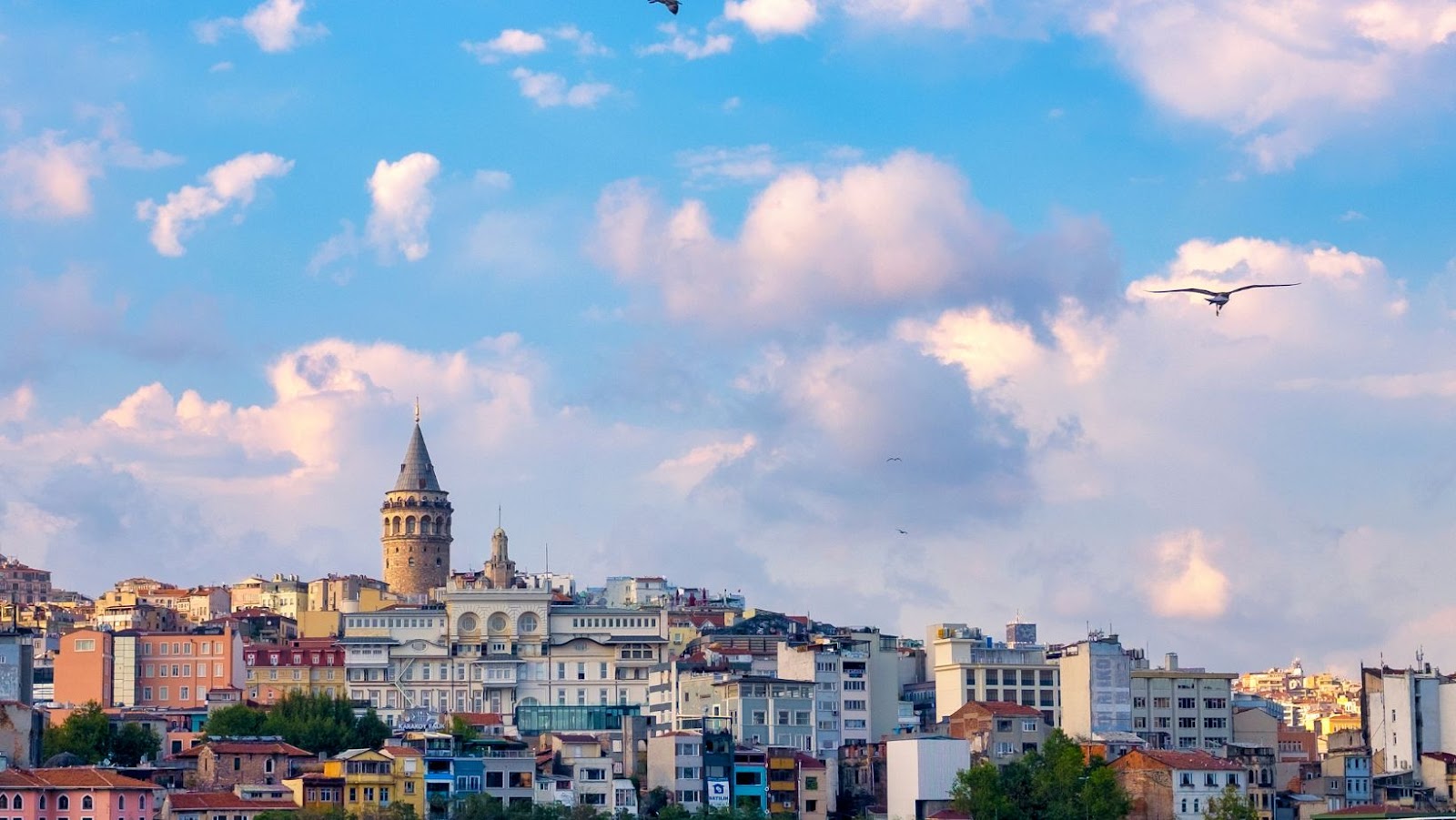Introduction to Turkey
Turkey, a country situated in Eurasia, bridging two continents – Europe and Asia. Its unique location has ensured that Turkey is a melting pot of cultures with a fascinating history, architecture, cuisine, and traditions.
Tourists can explore the rich heritage and visit ancient sites such as the Hagia Sophia and Blue Mosque in Istanbul. Additionally, Turkey is known for its breathtaking natural wonders spanning from the stunning beaches on the Mediterranean coast to the hot-air balloon rides in Cappadocia. Don’t forget to try Turkish tea and baklava!
Pro Tip: Remember to be respectful of local customs when exploring Turkey’s diverse culture.
Be sure to bring your dancing shoes to Turkey, because the locals will have you feeling like the star of a Turkish delight-filled musical.
Culture and Traditions in Turkey
To gain a comprehensive understanding of the culture and traditions in Turkey with a particular focus on Turkish hospitality and social etiquette, as well as Turkish cuisine and traditional dishes, continue reading this section. Through these sub-sections, you will learn about the warm and welcoming atmosphere that Turkish people offer their guests, as well as the rich and diverse flavors that Turkish cuisine has to offer.
Turkish Hospitality and Social Etiquette
The Turkish people’s customs and traditions are both steeped in history, including their warm hospitality and impeccable social etiquette. When visiting Turkey, guests can expect to be welcomed into homes with open arms and treated with the utmost respect. The caring and attentive attitude of Turks towards their visitors is what sets them apart from many other cultures.
Guests usually remove their shoes before entering Turkish homes as it is considered customary to do so. Furthermore, when greeting someone, Turks typically place their right hand over their heart as a sign of respect. It is also typical for Turkish hosts to offer their guests hot tea or coffee upon arrival as a gesture of hospitality.
In Turkey, the proper way to address someone is by using titles such as ‘Hanim’ for women and ‘Bey’ for men while addressing older people or those in positions of authority by using their titles: doctor, professor, etc. Additionally, during meals or gatherings, Turks tend to express gratitude by saying “afiyet olsun” (may it be healthy).
Historically speaking, hospitality has been an essential part of Turkey’s culture since ancient times. During the Ottoman Empire, caravanserais were constructed throughout Anatolia along major trade routes for visitors to rest and refresh themselves before continuing on their journey. These accommodations often included food and drink services that were paid for by the state.
Overall, while visiting Turkey, foreigners may notice that Turkish hospitality and social etiquette are impressive aspects of the country’s traditions that have lasted through time.
Turkey’s cuisine is so delicious, even vegetarians start drooling at the mere mention of kebab.
Turkish Cuisine and Traditional Dishes
Turkish cuisine boasts of a vast variety of traditional dishes that are both unique and flavorful. From succulent kebabs to savory mezes, Turkish cuisine reflects its cultural richness through its culinary traditions.
Here is a list of some popular Turkish dishes:
| # | Turkish Dish |
| 1 | Lahmacun (Turkish Pizza) |
| 2 | Simit (Turkish Bagel) |
| 3 | Kofte (Meatballs) |
| 4 | Baklava (Sweet Pastry) |
| 5 | Manti (Turkish Ravioli) |
These are just a few examples, and the list goes on. Each dish has a unique blend of spices, herbs and flavors that have been passed down for generations.
Not to mention, Turkish cuisine also incorporates various vegetarian and gluten-free options. It caters to diverse tastes and dietary preferences.
The origin of Turkish cuisine can be traced back to the Ottoman Empire where food was an important aspect of the culture. The empire’s creative cooks crafted new dishes by fusing different ingredients and drew inspiration from other cultures. This resulted in the evolution of an elaborate diversity in food that we now know as “Turkish Cuisine”.
If you’re in Turkey and not marveling at the beauty of Hagia Sophia or the historic grandeur of Cappadocia, then you’re Turkey-ing it too easy.

related:https://tr.wikipedia.org/wiki/google_%c3%87eviri google translate
To discover some of the most popular tourist destinations in Turkey, with Istanbul- the cultural capital, Cappadocia and its unique landscape, and Antalya’s Mediterranean beaches as solutions.
Istanbul, Turkey’s Cultural Capital
Istanbul, the European Capital of Culture, is a bustling city filled with history and culture. Its unique location on the Bosphorus Strait has allowed it to be a cultural crossroads for centuries. The city boasts beautiful mosques, ancient bazaars, and social history.
The city’s cultural significance dates back to its time as Constantinople when it was one of the world’s greatest cities. It has played an essential role in many empires throughout history, such as the Byzantine and Ottoman Empires. Istanbul’s rich heritage can be witnessed through its various museums, including the Topkapi Palace Museum, which showcases over 400 years of Turkish culture.
Istanbul offers a diverse food scene that combines traditional Turkish cuisine with international influences. One of Istanbul’s most famous ingredients is baklava, a delicious pastry made from layers of filo pastry filled with nuts.
A little-known fact about Istanbul is that it is home to one of the world’s oldest water supply systems, known as the Valens Aqueduct. The system dates back to Roman times and provided water for both Constantinople and modern-day Istanbul.
Get ready to rock your world (literally) with the surreal landscape of Cappadocia.
Cappadocia and its Unique Landscape
The region of Cappadocia in Turkey is home to a distinct and captivating landscape that sets it apart from other popular tourist destinations in the country. The area boasts unusual rock formations, ancient underground cities and breathtaking hot air balloon rides, making it a unique natural wonder.
The bizarre ‘fairy chimneys’, picturesque valleys and hidden churches carved into the rocks are just a few examples of the many attractions Cappadocia offers. Visitors can also explore the Goreme Open Air Museum that houses stunning frescoes dating back to the 10th century.
What’s more remarkable is how people lived in this region centuries ago. One can walk through underground tunnels used for shelter during times of war and learn about how locals hid themselves from their enemies.
For those seeking adventure, hot air balloon rides are an excellent way to experience the breathtaking scenery from above. Witnessing the sunrise over the distinctive landscapes is truly awe-inspiring.
To make the most out of everything this magical place has to offer, visitors should book guided tours with local experts who are trained to give insights on its history and traditions. Therefore, adding Cappadocia to your travel itinerary will ensure you have an unforgettable travel experience in Turkey!
Get ready to soak up the sun and the sea at Antalya’s beautiful Mediterranean beaches – just don’t forget the sunscreen, unless you want to turn into a lobster.
Antalya and the Mediterranean Beaches
This region in Turkey possesses a collection of breathtaking beaches found along the Mediterranean coastline. The famous Antalya and its surrounding towns offer beautiful, clear waters and stunning shorelines for tourists to enjoy. With numerous luxurious resorts lining the coast, visitors can experience unforgettable views with top-rated accommodations.
Tourists flock to this area for immersive experiences in nature, such as exploring ancient ruins like Perge or Aspendos, or hiking along the Lycian Way trail. Additionally, local markets provide opportunities to indulge in Turkish culture by sampling traditional foods and experiencing authentic hospitality.
Interestingly, Turkey is the home of the oldest known human settlement discovered at Çatalhöyük, estimated to be over 9,000 years old (Source: history.com/topics/ancient-history/catalhoyuk).
Turkey has a history so rich, even Indiana Jones would trade his fedora for a fez.
History of Turkey
To gain insight into the rich history of Turkey, dive into the Ottoman Empire and its cultural influence on the region. Follow the timeline of Turkish history to learn about Ataturk and the modernization of Turkey.
Ottoman Empire and its Legacy
The Ottoman Empire was a significant political entity that dominated much of southeastern Europe, western Asia and northern Africa for several centuries. Its legacy is still visible in many regions today. The Empire established a powerful centralized government, implemented innovative laws and institutions, and fostered the development of diverse cultures and arts. It also expanded trade routes, constructed impressive buildings and landmarks, and built relationships with neighboring states. The Ottoman Empire’s impact on global history is immense.
The cultural influence of the Ottoman Empire can be seen in architecture, music, and literature as well. The creation of the Arabic alphabet made it easier for Ottomans to centralize administration across their multi-ethnic empire. This facilitated communication between different people living within the empire’s borders. Language reforms allowed individuals to develop their culture in their language while keeping their identity intact.
Another unique feature of the Ottoman Empire was its Sephardic Jew population. They settled in Istanbul after being expelled from Spain by Queen Isabella due to religious convictions. In Istanbul, they flourished by contributing significantly to society along with other minority groups.
Pro Tip: Understanding the history of the Ottoman Empire helps appreciate modern-day Turkey while analyzing important political decisions that shape everyday life situations in Turkey.
Ataturk turned Turkey into a modern, secular state; unfortunately, some people are still stuck in the Ottoman Empire era.

Ataturk and the Modernization of Turkey
During the early 20th century, there was a transformative shift in Turkey led by a visionary leader. This leader reshaped Turkish society, politics, and economy – paving the way for modernization. He sought to detach Turkey from its Ottoman past and Europeanize it. The consequences of this transformation were enormous, reflected in many aspects of life, including a new constitution, education system, dress code and adopting the Latin alphabet.
His far-reaching reforms founded on secularism, democratic principles and social justice provided a solid groundwork for increasing female educational opportunities promoting women’s rights and combating inequality. Notably important was the abolition of centuries-old feudal practices like polygamy and unbridled authoritarian rule. These monumental changes put Turkey on a path to widespread progress.
What is equally fascinating about these changes is that they reflect Ataturk’s dedication towards establishing a modern state that emphasized science, technology and economic stability over fundamental conservative Islamic practice’s preservation.
Those who overlook history are doomed to repeat it. It is crucial that we understand how Ataturk transformed Turkey from an ideologically backwards nation into a more inclusive entity – underpinned by democracy and social justice so that Turkey may take another step forward towards greater inclusivity – leaving behind barriers that can slow down growth prospects while injecting cynicism into society’s bloodstream.
Turkey may be famous for its delicious cuisine and rich history, but remember to bring your own toilet paper – just in case.
Practical Information about Turkey
To get all the practical information necessary to travel to Turkey with ease, turn to the section ‘Practical Information about Turkey’ with its sub-sections; ‘Entry Requirements and Visa Policies’, ‘Weather and Best Time to Visit Turkey’, and ‘Transportation and Getting Around Turkey’ for all your solutions.
Entry Requirements and Visa Policies
In order to visit Turkey, one must comply with its entry requirements and visa policies. Let’s dive into the necessary details for a successful trip.
In accordance with the current regulations, Turkish officials require visitors from most countries to acquire an e-Visa or a visa sticker. The visa sticker can be obtained at Turkish embassies or consulates while the e-Visa application process is completed online. The latter option is highly recommended for it is efficient, easy to use, and cost-effective. For additional information regarding the e-visa eligibility conditions and registration processes, please refer to the table below.
Table:
| Eligible Countries | Ineligible Countries | |
| e-Visa | 109 countries | Algeria; Cuba; Sierra Leone; Congo |
| Visa Sticker | All countries | – |
It is worth noting that upon arriving in Turkey, border officials may ask for a valid passport, return tickets, hotel reservations and proof of sufficient funds during your stay. Please ensure that all the necessary documents are prepared beforehand.
For optimal convenience throughout your travels in Turkey, it is advised that you carry cash in local currency or debit/credit cards widely accepted locally (such as Visa and Mastercard). Additionally, utilizing a pre-paid travel card not only helps in regulating personal expenses but also reduces foreign transaction fees charged by banks.
Planning a trip to Turkey? Don’t forget to pack for all seasons, because Mother Nature likes to switch things up more often than a politician during election season.
Weather and Best Time to Visit Turkey
Turkey’s diverse climate offers different experiences depending on the season, making it a year-round destination. Visitors should consider regional weather and their travel preferences for the best experience. Summers can be hot and crowded in popular coastal areas, while visitors can enjoy cooler temperatures and fewer crowds during spring and autumn. Winter’s charm attracts skiers to mountain resorts but may make visiting historical sites difficult due to snow.
For optimal weather conditions, April-May or September-October are recommended. These months provide pleasant temperatures suitable for sightseeing, enjoying outdoor activities and experiencing festivals. June-August is peak tourist season, with high temperatures, large crowds and increased prices across Turkey.
It’s worth noting that Eastern Turkey has colder winters with heavy snowfall, while western coastal towns rarely see snow. Considering customs and traditions such as Ramadan should also be taken into account for a smoother trip.
According to Turkish tradition, the world’s first Santa Claus was born in southern Turkey’s Demre; Saint Nicholas visited children and gave them gifts late at night anonymously.
(Source: National Geographic)
Getting lost in Turkey’s labyrinthine transportation system is all part of the adventure, just make sure to pack a good map and a sense of humor.
Transportation and Getting Around Turkey
Navigating Turkey’s various modes of transportation can be an extensive but rewarding adventure. With options ranging from domestic airlines to local buses and taxis, visitors can quickly travel through Turkey’s cities and rural areas. In addition, applications such as Uber and BiTaksi make hailing a taxi or private car in Turkey simple and convenient.
Taking the ferry is a popular choice for traveling around Aegean, Mediterranean, and Marmara coastlines in Turkey. If traveling by sea does not suit you, the best time for utilizing Tellfi entertainment buses or Metro bus services is between May to September. These offer comfortable long-distance coach journeys that connect major cities efficiently.
It is essential to note that Turkish public transport systems are relatively cheap. Still, tourists are advised to use apps like Moovit or Trafi when traveling by public transit because of language barriers. Besides, renting a car and touring quaint villages at your leisure is also possible with roads well built in the country.
Turkey: where the allure of the present merges seamlessly with the rich heritage of the past.
Conclusion: The Allure of Turkey and its Rich Heritage
Turkey’s Fascination and Deep Historical Roots
Turkey, with its diverse culture and rich heritage, is a fascinating country that enchants many travelers. Its history dates back to ancient times, leaving behind various historical monuments like the Hagia Sophia, Topkapi Palace, Ephesus ruins, and more. The country has a unique mix of Eastern and Western influences that attract visitors to experience its cultural diversity.
Apart from its historic significance, Turkey also features picturesque coastal towns like Bodrum, Cesme and Alanya. They offer stunning views of the clear blue waters of the Aegean Sea and Mediterranean. Additionally, the delicious Turkish cuisine and warm hospitality are noteworthy aspects that make Turkey an intriguing destination.
For those seeking adventure beyond landmarks and food indulgences, Turkey offers various outdoor activities in its beautiful countryside. Visitors can participate in hot air balloon rides in Cappadocia or enjoy trekking along the Lycian Way trail while experiencing ancient ruins en route.
Overall, Turkey’s eminence as a historical powerhouse alongside natural beauty compels visitors to visit time after time. Discover the charm of this truly unique country first-hand – don’t let FOMO get you!






